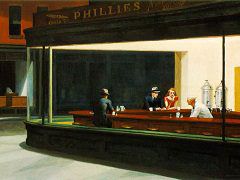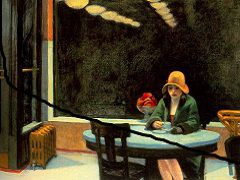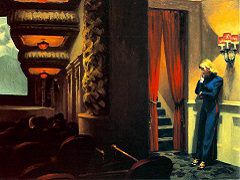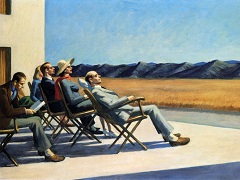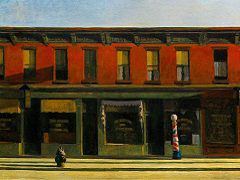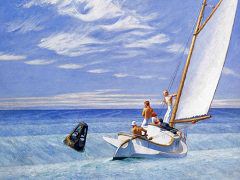Road in Maine, 1914 by Edward Hopper
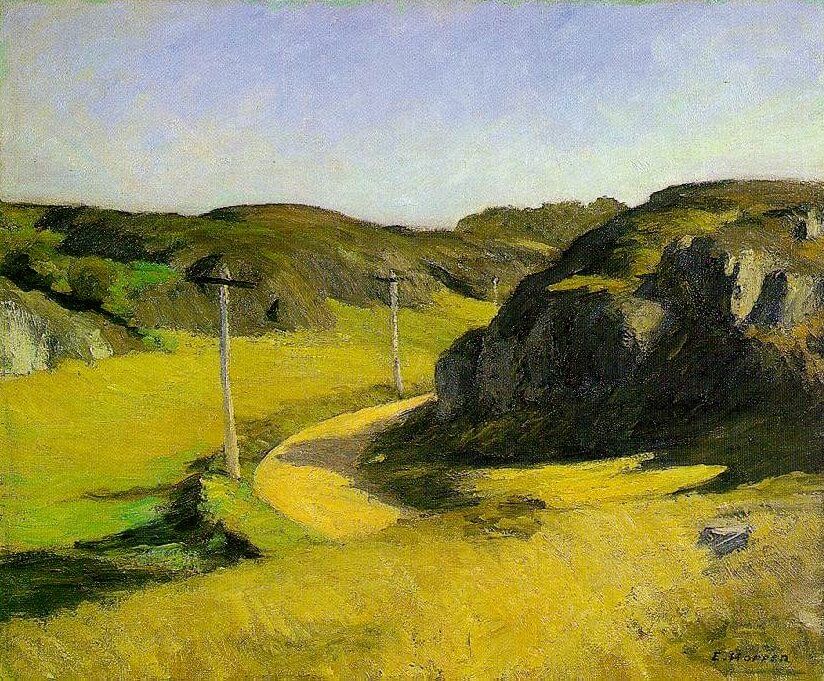
Road in Maine shows Hopper beginning to bring the free brushwork he had developed in Paris under control.The landscape treatment here shows the evident influence of Paul Cezanne, except that Hopper's canvas lays claim to its own, intrinsic reality - and yet remains strangely tied to the actual landscape represented.
In an often-quoted statement made to Lloyd Goodrich, perhaps prompted by the torment of having to comply with editors' demands to depict "people waving their arms," Hopper admitted: "Maybe I am not very human. What I wanted to do was to paint sunlight on the side of a house." What this implies, I think, is that rather than concentrating on human beings and their activities, Hopper was more concerned with the meditative aspect of the world, which sunlight on the side of a hill, as in Road in Maine would be sufficient to evoke. Perhaps he was thinking along similar lines to Giorgio de Chirico, who once said, "In the shadow of a man walking in the sun there are many more riddles than in all religions of the past, present, and future."
The human quality was no more alien to Hopper than to Johannes Vermeer, to Caspar David Friedrich, or to Paul Cezanne. But Hopper did not necessarily need the human figure to express it. He may not have been a born painter of figures, but human nature was as familiar to him as to any twentieth-century artist. An artist need not depict groups or masses of people, or paint detailed portraits of individuals, in order to prove himself a humane, a humanly interested artist. Hopper dealt sparingly but sensitively with the human figure and its characterization. He showed people in their isolation, but he took this isolation seriously. If most of his figures were small in scale with respect to their setting, never appearing to dominate it, perhaps this reflected the fact that man is no more than a speck in the universe. To Hopper, any other view would have seemed delusory. Every human being remains bound to his or her place in the world, dependent on it, part of a complex system of reciprocal relationships.

